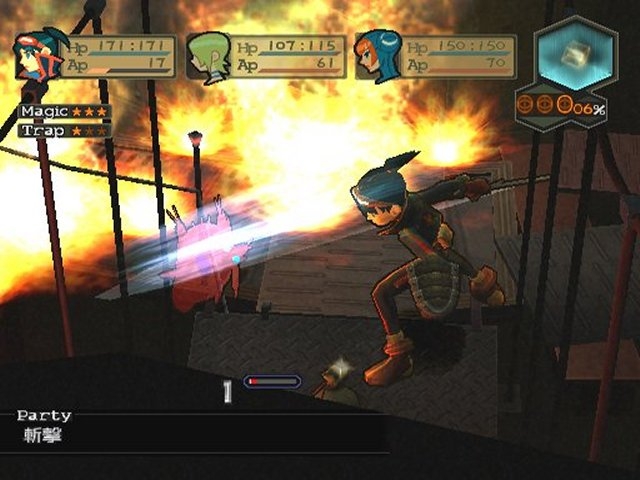Breath of Fire: Dragon Quarter - Finished the game
I like games that do things differently and as I've mentioned before, Dragon Quarter is quite different from your standard Japanese RPG. I mentioned the similarities to survival horror that the game has, but I don't think I mentioned that there are no inns or ways to heal yourself for free. Let that sink in. It means that every time you make it to a shop, you first have to spend the money to buy healing items just to restore your health. This makes the game incredibly tense. You can never really relax because you've just beaten a big boss since healing yourself afterwards will not be cheap. Resource management is key to the game.
As it turns out, I was really good at the resource management. Despite the fact that the game expects you to do at least one SOL Restart through the course of playing it, I never had to do that. I did get a game over about a half dozen times while playing it, but two of those were right in the beginning before even getting the dragon powers and all the rest were boss fights where I just handled the strategy wrong and had no problem with it the next time. It seems I stocked my inventory well as I always had just enough healing items to make it from shop to shop. My D-Counter was only at about 35% when I reached the final gauntlet of boss fights and so I was able to D-Dive each of the last three bosses.
Even though I D-Dived those bosses, I got the feeling that I could have beaten them with shrewd tactics with just regular attacks. That was a much better feeling than the one time I D-Dived before where I felt it was absolutely impossible to win without doing that.
This game did some things really well. The character customization system with weapons that have slots you can fill with different skills was great. The combat system was generally excellent, with strategic movement and combination attacks. The music is also a strong point of the game.
There are some rough edges too. Though combat is generally great because you always need to use strategy against even regular enemies and can't just mash on attack, it can become very tedious to employ whatever specific strategy you need to defeat each enemy. Tedium is generally the problem, as navigating the interface (all the menus to equip items and skills and especially manage the fairy colony) can take awhile. Reaching the shop again requires a significant break in the game while you buy the items to heal your characters, identify all unknown stuff and then decided what to keep and what to sell.
Overall, though it was a very enjoyable game and I'm glad I experienced it.
I'm actually tempted to play through it again. Whenever you do an SOL Restart (which can also be done after finishing the game), you may lower your D-Ratio which will unlock additional cut scenes during the playthrough. The story in the game is very minimal and I think that's appropriate for the playthrough, but I like the idea of filling in background information on a subsequent playthrough. Of course, I know the reality is that I have so many good games I haven't played yet, I probably won't play through it again. But maybe I'll at least do the beginning part.





